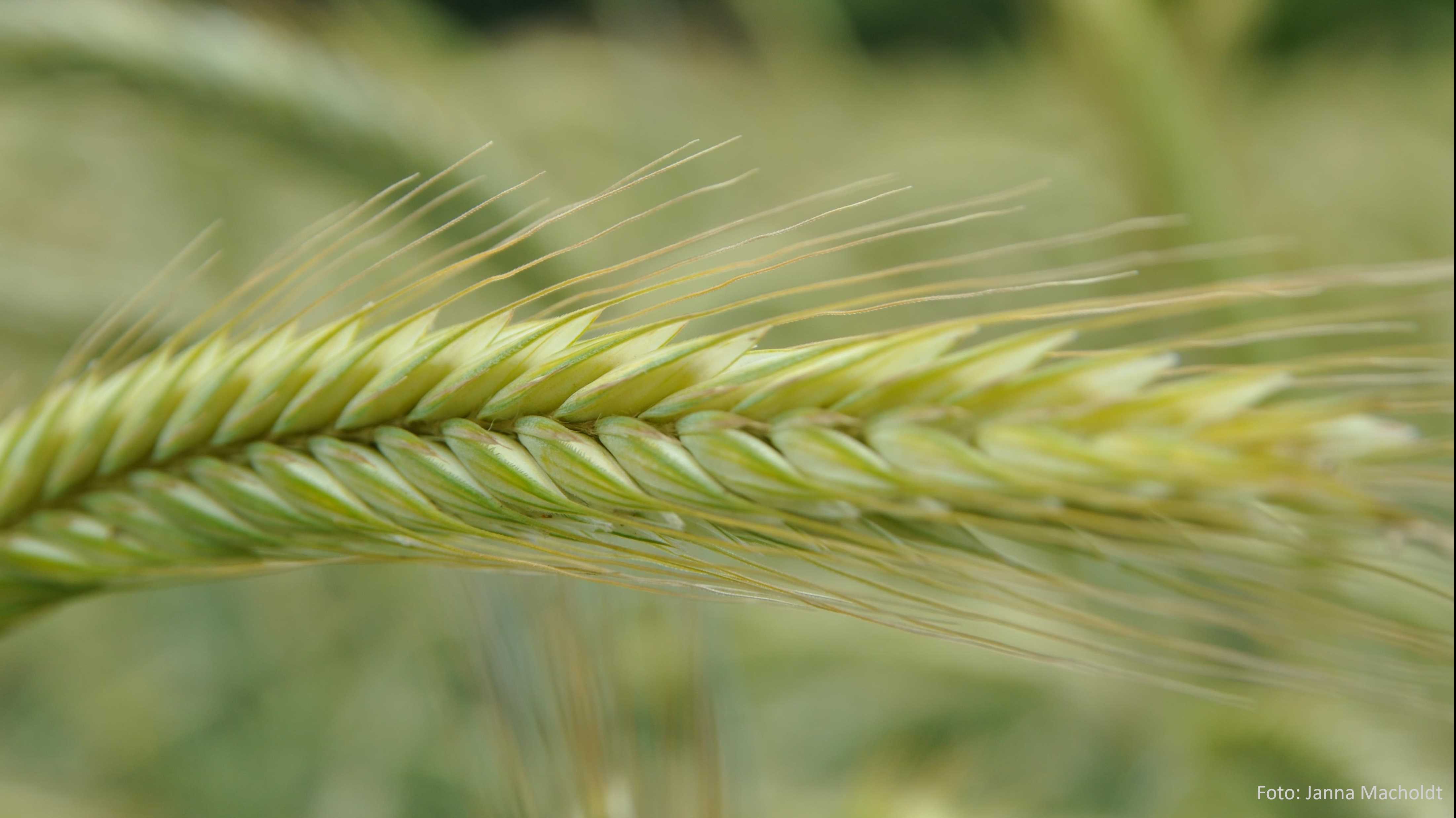
Links
Institute of Agricultural and Nutritional Sciences

© Wim Wätjen / Uni Halle

© Wim Wätjen / Uni Halle
Executive Board
Prof. Norbert Hirschauer
Prof. Robert Mikutta
Prof. Andrea Henze
Prof. Janna Macholdt
Claudia Kirchner-Schürz (Administration Office)
Tel./Fax: +49 (0)345 55-22301/-27118
claudia.kirchner-schuerz@landw.uni-halle.de
Dr. Annett Weltrowski (Head of the Institute Administration)
Tel.: +49 (0)345 5522302
annett.weltrowski@landw.uni-halle.de
Karl-Freiherr-von-Fritsch-Straße 4
06120 Halle (Saale)
Postal address:
Martin-Luther-Universität Halle-Wittenberg
Naturwissenschaftliche Fakultät III
Institut für Agrar- und Ernährungswissenschaften
06099 Halle (Saale)
Highlights and Achievements
New data publication from the Halle long-term field trials
In 1878, Julius Kühn sowed winter rye in a field trial for the first time. Almost 150 years later, the first data set of the “Eternal Rye” long-term trial has now been successfully published. The new database at LTEhub Halle contains comprehensive records of grain and straw yields from winter rye under various fertilization variants and is now available here . We are delighted that the data is now available to all interested parties in accordance with FAIR standards and can be cited.
The institute at the international agricultural technology trade fair “Agritechnica”This year, the IAEW presented itself together with the Leibniz Institute for Agricultural Engineering and Bioeconomy (ATB) at Agritechnica (November 8-15, 2025). The joint stand attracted great interest among trade fair visitors, who were able to find out about agricultural and food sciences in Halle and, in particular, the degree programs on offer. The fair featured 2,849 exhibitors from 52 countries. A total of 476,000 visitors from 171 countries attended the event. This underscores the relevance of Agritechnica for Germany as a center of innovation and for the agricultural engineering industry.
Meeting of the Agricultural Committee and “Landtag im Dialog”

On November 20, 2025, the Committee for Agriculture, Food, and Forestry of the Saxony-Anhalt State Parliament gained comprehensive insights into the institute's cutting-edge agricultural research. Approaches to digitizing plant value chains , strengthening the climate resilience of crops, and promoting the diversity of plant proteoforms were presented. A tour of the plant culture chambers, the crop garden, and the Plant Food Lab highlighted the capabilities of the research facilities. Specialist presentations by Dr. Schubert (BfR) and Prof. Wätjen (IAEW) on food safety also provided insight into the toxicological assessment of pesticide residues.
Plant protection was discussed at the “Landtag im Dialog” event under the title “Harvest? But of course!” The exchange with citizens focused on ecological and health aspects as well as yield and competitiveness.

On November 19, 2025, the IAEW and the DiP network, together with the Ministry of Economics, Tourism, Agriculture, and Forestry of Saxony-Anhalt, hosted a dialogue event with Agriculture Minister Sven Schulze (Heidecampus, Theodor-Lieser-Str. 9, 5 p.m. to 7 p.m.).
In an open discussion, around 90 school pupils, students, farmers, and scientists talked to the minister about the future of agriculture between practice, research, and politics. Young people were able to find out about studying agricultural sciences and discuss new perspectives for their studies and future careers in Saxony-Anhalt. Information about the event can be found here .
A special afternoon in honor of Julius Kühn
In 1862, the first professor of agriculture in Germany was appointed in Halle: Julius Kühn , affectionately known as “Father Kühn.” He founded the Agricultural Institute, established the teaching program, and conducted practical research. The institute and the “Kühn Collection” (domestic animal studies) gained international renown. On October 23, 2025, on Kühn's 200th birthday, he was commemorated with lectures, an art film, and a special photo session: photographer Maximilian Zeitler captured the cold-blooded stallion Nussbaum on glass plates with a historical camera. This was a tribute to Kühn's animal photo documentation, of which around 7,000 glass plates have been preserved. A brochure highlights the significance of Kühn's legacy for current agricultural research.
Hands-on soil science at the SILBERSALZ Science & Media Festival

At the SILBERSALZ Science & Media Festival from October 28 to November 1, 2025, staff from the Chair of Soil Science and Soil Protection and the Just Transition Center at Martin Luther University showed why it is worth taking a closer look at the world beneath our feet. Together with interested visitors, they explored how earthworms contribute to soil fertility, what role soil plays as a carbon sink, and how mineral residues from lignite mining can be used to recultivate humus-poor spoil heaps.
Event zum 200.Geburtstag von Julius Kühn - 23.10.2025
15:00//Ort: Steintorcampus/Adam-Kuckhoff-Straße 35a /Treffpunkt: Museum für Haustierkunde
Der Geburtstag von Julius Kühn (1825–1910) jährt sich am 23. Oktober zum 200sten mal. Wir widmen diesem herausragenden Agrarwissenschaftler, dem Vater der universitären Landwirtschaft, dem Begründer der Phytopathologie und dem Initiator für die weltbedeutende Sammlung an Haustierskeletten einen sehr speziellen Nachmittag mit Glasplattenfotografie, Kurzfilmen, Sammlungszuwachs und Tierwertschätzung.
Mit dabei: Prof. Dr. Falko Holz (Präsident der Landesanstalt für Landwirtschaft und Gartenbau Sachsen-Anhalt), Dr. Matthias Löber (Geschäftsführer der RinderAllianz GmbH) und Maximilian Zeitler (Fotograf Berlin)
Achtung! Die Platzkapazität für die Veranstaltung ist begrenzt! Teilnahme nach Einladung oder Nachfrage! In beiden Fällen ist eine Anmeldung notwendig!
Bitte wenden Sie sich daher für die Registrierung an: koordination@zns.uni-halle.de
Für Rückfragen steht Ihnen Arila Perl, 0345-55-26131 zur Verfügung. Wir freuen uns sehr auf Ihr Kommen!
Graduation ceremony for graduates of the Institute of Agricultural and Nutritional Sciences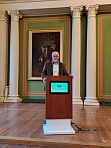
On October 11, 2025, the graduation ceremony for master's students from the Institute of Agricultural and Nutritional Sciences took place in the auditorium of the Löwengebäude building. Around 120 guests attended the ceremony. During the presentation of certificates, the best graduates from each department were given special recognition. The event concluded with musical accompaniment and a champagne reception in a festive atmosphere.
From the test field to the food lab - research in structural change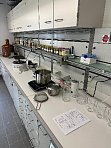
In the summer of 2025, work began at the IAEW Foodlab on the Heidecampus. In this interdisciplinary project, agricultural and food scientists are working together to develop sustainable foods and provide scientific support for the production processes. As part of the DIP project “Superfood from Saxony-Anhalt” the opportunity was created to process climate-adapted crops from the experimental field in Merbitz, including various types of millet and legumes, in a food laboratory.
Approval of ERASMUS+ Funds for Mobility Kyjiv‒HalleFollowing the successful application in the ERASMUS+ Call 2025, sufficient funds are available for student and staff mobility with the National University of Life and Environmental Sciences of Ukraine in Kyjiv for the period 2025 to 2028. Unfortunately, due to Russia's war in Ukraine, no outgoing mobility can be funded at present. However, we hope that students and colleagues from Kyjiv will be able to make good use of the opportunities for cooperation and study in Halle.
If you have any questions, please contact the ERASMUS coordinator Norbert Hirschauer (norbert.hirschauer@landw.uni-halle.de).

Prof. Janna Macholdt and Prof. Marcel Quint are hosting this year's annual scientific conference of the Gesellschaft für Pflanzenbauwissenschaften, which they have given the theme “Planetary Boundaries: Rising to the Challenges Ahead”.
International Summer School on Agrobiodiversity Visited the Kühnfeld
On August 25, 2025, around 25 students visited the “Julius Kühn Field” teaching and experimental station as part of the Agrobiodiversity Summer School, a joint initiative of FiBL (D/CH) and ZHAW. After a tour to the historic long-term field experiments, a guest lecture by Prof. Alfons Balmann (IAMO) highlighted agricultural structures in East and West Germany. From the Institute of Agricultural and Nutritional Sciences, Prof. Janna Machold (diversification of crop rotations), Till Newiger-Dous (mixed cropping), and Dr. Thomas Reitz (soil biodiversity) presented current research topics on biodiversity in agriculture. The international students thus gained a compact insight into agricultural structures, crop rotations, intercropping, and soil biodiversity.
Keeping Nitrogen and Water in the System
What do catch crops do in terms of nitrogen conservation and what influence do they have on soil water? A joint research project between the Chair of Agronomy and Organic Farming (MLU), Agrarberatung Dreyer and the Deutscher Wetterdienst has looked into this topic—focusing on the question: “How much water do catch crops draw and how much water is available for subsequent crops?”
Study Information Day on June 4, 2025
Under the title “Studying with a Future: An Overview of Agricultural Sciences”, a study information day was held at the IAEW for the first time on June 4, 2025 from 1pm.
Interested pupils were able to gain a variety of insights into the study of Agricultural Sciences in guided tours on topics such as soil compaction, plant research and animal science. It became clear how diverse the subject is and which central topics are addressed. Discussions with the Student Council continued into the evening to clarify any remaining questions.

At this year's University Information Day, the IAEW once again provided young people with information about study opportunities. Prof. Mikutta and Prof. Wätjen gave a brief overview of the agricultural and nutritional science degree courses. Institute staff and students answered the many questions of those interested. In addition, interested pupils visited the IAEW as part of a guided tour by Prof. Pillen. The University Information Day ended at around 3pm in fine weather.
Hands-On Agriculture
Once again this year, over 20 students from a wide range of disciplines took part in the three-day excursion of the ASQ “Zukunftsfähige Landwirtschaft” (Sustainable Agriculture). They visited research facilities as well as farms of different production types and sizes. The ASQ is supervised by the Chair of Agricultural, Environmental and Food Policy.
Graduation Ceremony for Graduates of the Institute of Agricultural and Nutritional Sciences
On April 5, 2025, the Graduation Ceremony for Master's students from the Institute of Agricultural and Nutritional Sciences took place in the auditorium of the Löwengebäude. The event, which was attended by around 120 people, was organized—as every year—with great commitment by the students of the Institute. In addition to the awarding of certificates, a highlight of the event was the award ceremony for the best graduates of 2024.
Ceremonial Opening of the DiP Research Network with Representatives from Research, Business, Politics, and Society
The south of Saxony-Anhalt is to become a model region for a climate-neutral and sustainable bioeconomy with high-value jobs. This is the goal of the joint project “Digitalisierung pflanzlicher Wertschöpfungsketten” (Digitalization of Plant Value Chains; DiP), which is being funded by the BMBF with up to 105 million euros as part of the National Bioeconomy Strategy and the Strukturstärkungsgesetz Kohleregionen im Mitteldeutschen Revier (Economic Strengthening Act for Central Germany's Coal Regions). Saxony-Anhalt's Science Minister Prof. Dr. Armin Willingmann and BMBF State Secretary Dr. Karl-Eugen Huthmacher were informed about the status of the 19 collaborative projects in the first funding phase (2024-04 to 2028-12) at the DiP kick-off event on March 4, 2025 at the IPK in Gatersleben. Prof. Dr. Klaus Pillen (MLU) is coordinating the project with more than 50 partners from science and industry.
Nutritional Sciences of the MLU Take Over Scientific Management of the 62nd Congress of the German Nutrition Society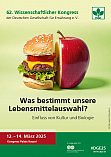
Prof. Andrea Henze, Prof. Gabriele Stangl and Prof. Wim Wätjen are responsible for the scientific organization of this year's DGE Congress with their expertise in the field of nutritional science, which they have placed under the theme “What determines our food choices? The influence of culture and biology”.
Nitrous Oxide—in the Focus of Research
At the Chair of “Agronomy & Organic Farming” the role of nitrous oxide in agriculture as well as possible detection and reduction measures have been researched in various projects for years. The aim of the research is to find out how farmers can make their N fertilization more efficient, save greenhouse gas emissions and at the same time secure their yields—for example by using inhibitors. The research projects are therefore of great importance for the development of sustainable and climate-resilient crop production systems.
How the Pig Got Its Flat Snout
The domestic animal collection from the MLU Institute of Agriculture is making headlines with its pigs. A team led by Dr. Renate Schafberg has discovered that domestic pigs have changed significantly over the last 100 years. Breeding selection has greatly shortened the pig's snout and widened its skull. Humans have done it: evolution in fast-forward.
The Puzzle of Plant Proteins
A research team led by Prof. Marcel Quint has received millions in funding to better understand genetic processes in nature and use this knowledge in a targeted manner. The Collaborative Research Center “Plant Proteoform Diversity” will investigate how minimal changes in the genetic material of plants influence the functioning of proteins.
Does Hedging Reduce Entrepreneurial Risk?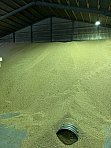
A study of 2,200 farms by Lukas Sigl and Prof. Norbert Hirschauer shows that in the majority of cases, “hedging” with commodity futures would have only slightly reduced or even increased “whole-farm risk”. This contradicts the positive and hasty assessment of many agricultural economists.




